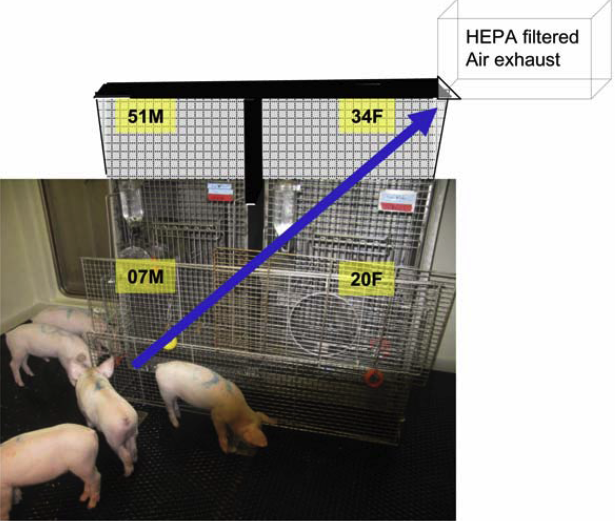Ebola, a few thoughts
I’m monitoring the news carefully and it seems to me that the hysteria regarding the Ebola outbreak in West Africa runs a risk of not being constructive to the effort to combat the disease, and making the discussion too politicized. There appears to be an absence of high-quality information available in the media which inflates the fears. The NYT published an Op-Ed today from Michael Osterholm claiming that another significant concern is that Ebola could become transmissible through air. This opinion piece argues that we need to be concerned about Ebola becoming transmissible by breathing the same air as Ebola patients.
Really? Osterholm cites a Nature article from 2012, showing that Ebola could be transmitted from pigs to non-human primates and claims that the mode of transmission is airborne. However if one reads the paper, the study did not distinguish between airborne and small droplets of fecal matter as modes of transmission and the authors acknowledge this ambiguity in their discussion. Furthermore, a follow-up study to the 2012 study, with the same senior author, ruled out airborne transmission of Ebola between non-human primates, a significant fact that Osterholm omits from his Op-Ed.
In known cases where a virus has altered from gastro-enteric to respiratory modes of infection, to date this has only been observed in a situations where animals have their nostrils and respiratory tracts in near constant contact with fecal matter (have you ever visited a pig farm?). So, while Ebola is scary, let’s not pile on the scare by entertaining new theoretical modes of transmission.

Schema of the animal cubicle layout with indicated airflow (blue arrow in front of the cages in the upper image and arrow leading from the air input to the air exhaust in the lower image). Supplementary figure from 2012 study “Transmission of Ebola virus from pigs to non-human primates”.
While updating my lectures with some relevant Ebola material I searched the CDC website to get hold of some statistics and stumbled across a section of the CDC website dealing with “Preparedness for a Zombie Apocalypse“. Really CDC? When the public has enough difficulty getting accurate scientific information about real life diseases? Perhaps one of those projects that “seemed like a good idea at the time“?
Comments
Leave a Reply
You must be logged in to post a comment.

